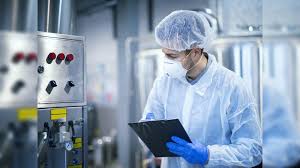
DIPLOMA IN FOOD TECHNOLOGY (2 YEAR)
📘 1st Year Syllabus
1. History and Development of Food Technology
- Evolution of food processing and preservation techniques globally and in India
- Traditional vs modern food technology
- Milestones in food technology development
- Role of food technology in food security and industry
2. Food Chemistry
- Composition of food: carbohydrates, proteins, fats, vitamins, minerals, water
- Chemical changes during processing and storage
- Food additives and their functions
3. Food Microbiology
- Microorganisms in food: beneficial and harmful
- Food spoilage and contamination
- Principles of food preservation through microbiology
4. Food Processing and Preservation Techniques
- Thermal processing: pasteurization, sterilization, blanching
- Refrigeration and freezing
- Drying, fermentation, irradiation, canning
- Packaging materials and methods
5. Food Safety and Quality Control
- Food safety standards and regulations (FSSAI, HACCP)
- Quality control techniques
- Hygiene and sanitation in food processing
📗 2nd Year Syllabus
1. Food Product Technology
- Technology of dairy products, fruits and vegetables, cereals, pulses, meat, poultry, and fisheries
- Processing of bakery and confectionery products
- Beverage technology: tea, coffee, soft drinks, alcoholic beverages
2. Food Engineering
- Principles of food engineering
- Equipment and machinery used in food processing
- Plant layout and design
3. Food Packaging and Storage
- Types of packaging materials and their selection
- Packaging techniques
- Storage conditions and shelf-life extension
4. Food Regulations and Legislation
- Food laws and regulations in India and internationally
- Labeling requirements
- Intellectual property rights in food technology
5. Food Industry Management and Entrepreneurship
- Basics of food industry management
- Marketing and distribution of food products
- Entrepreneurial skills for starting food processing units
6. Practical Training and Industrial Exposure
- Hands-on training in food processing labs
- Visits to food processing industries and quality control labs
- Internship or industrial training

